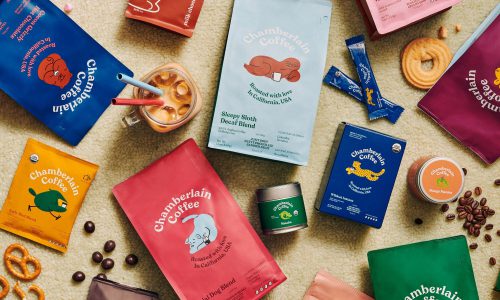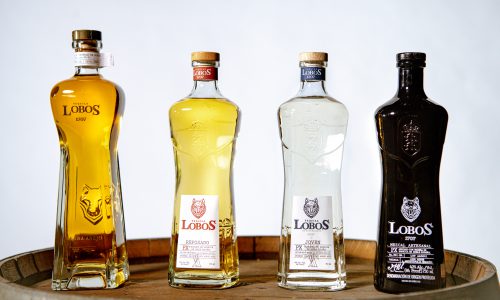 Each month, ForceBrands partners with The Tasting Panel magazine. The Tasting Panel offers an insider’s look at the tastemakers and trendsetters in today’s growing beverage industry. From winemaker profiles, to brands that are the bartenders’ best friend, this monthly publication gets up close and personal with today’s influencers and explores the products they love the most. With a readership of 85,000 professionals across all levels of the industry, The Tasting Panel maintains its position as a leading authoritative voice in the beverage industry. This article originally appeared in the January/February 2020 issue of The Tasting Panel.
Each month, ForceBrands partners with The Tasting Panel magazine. The Tasting Panel offers an insider’s look at the tastemakers and trendsetters in today’s growing beverage industry. From winemaker profiles, to brands that are the bartenders’ best friend, this monthly publication gets up close and personal with today’s influencers and explores the products they love the most. With a readership of 85,000 professionals across all levels of the industry, The Tasting Panel maintains its position as a leading authoritative voice in the beverage industry. This article originally appeared in the January/February 2020 issue of The Tasting Panel.
When it comes to effective marketing practices, connecting with consumers on an emotional level is one of the greatest challenges. As Vice President of Marketing at Davos Brands, Daniel Mandelbaum works with a robust portfolio of up-and-coming brands to create campaigns that are authentic and “arise from the brand’s actual DNA.”
We caught up with him to learn more about what inspired him to pursue brand marketing in the alcoholic beverage industry over other consumer sectors, how he builds emotional connections between brands and consumers, and more.
ForceBrands: You have worked with a few CPG brands; what attracted you to the beverage industry specifically and to this role?
Daniel Mandelbaum: I began my career at P&G, which gave me an amazing business foundation, one that not only prepared me for roles within P&G, but also for senior positions in other companies industries. Having said that, what attracted me to the alcoholic beverage industry is a need to connect with consumers on an emotional level, one need that I did not find with traditional CPG products on a regular basis. I believe the need to make such connections with consumers is one of the hardest challenges any marketer can face.
The meaning of “emotional connections” may be an ever-evolving term, one that is tied to culture. When it comes to creating an emotional connection, you have to look for a holistic experience, from making beautifully crafted products to placing a strong story at the center of any product. You create products with evocative backgrounds, interesting stories, or unique collaborations. Then, with every product launch, innovative and creative experiences are crucial to your thinking. What attracted me to Davos Brands was the opportunity to work on an amazing, diverse, and up-and-coming brand portfolio, all while connecting with consumers emotionally.
FB: In a competitive spirits market, what strategy does Davos Brands implement to connect with the consumer?
DM: It starts with craft, best-in-class products, of course. Then, we communicate with consumers in a way that is unique, relevant and ownable. Consumers expect more from their brands today. Brands need to have a shared set of values. It’s not enough that the drink is amazing — brands need to have an identity or quality consumers can identify with.
FB: Can you give an example of a marketing strategy or a marketing campaign you have introduced since starting at Davos Brands?
DM: We have a fantastic brand called Sombra Mezcal, one that was just awarded the 2019 Leading Sustainability and Environmentally Friendly Mezcal by the Mezcal Institute. Each step of Sombra’s production, from fermentation to distillation, has been reimagined to reduce its environmental impact. I believe any successful marketing campaign must be authentic and arise from the brand’s actual DNA. In Sombra’s case, we are marketing sustainability simply because that is what the brand is all about. Under the sustainability umbrella, we created the Sombra Adobe Brick Project which upcycles Sombra’s distillate by-product into bricks to build homes for those in need. We want to create a virtuous circle by attributing homes in our local Mexican State of Oaxaca to distributors and customers who have made a positive impact on those most in need. With these actions, we started the dialogue on ways our business can not only contribute to social change and sustainability but also achieve growth, all while providing houses to underserved markets with great implications for the future.
FB: What is the most rewarding and exciting part of your job?
DM: I love the fact that it starts as a joke, “a guy walks into a bar,” but from a simple conversation with a bartender, I love seeing how our efforts evolve and help shift consumer behavior. I love creating and taking a relatively unknown brand into the forefront.
FB: What is the most challenging part of your job? Can you share tips for marketing professionals looking to succeed in your role?
DM: One of the biggest challenges that not only I have, but also many marketers face is feeling pulled in multiple directions. As such, I’d suggest pausing. Prioritize and focus on really understanding the strategic goal; then, make sure that every strategy and tactic you employ helps you to reach your objective.
FB: How does Davos Brands keep up with the emerging trends and stay relevant in the face of the rapidly growing cannabis industry?
DM: We do what I suspect many others do as well, from reading a lot to having our eyes and ears to the ground. What I do not subscribe to is that this is a binary equation. There are many types of consumers, as are usage occasions. I don’t believe this is an “us vs. them” situation. The real question is whether our brands are dynamic enough to maintain their relevancy in the face of a changing landscape.
FB: How would you describe Davos Brands’ work culture?
DM: It’s a roll-up-your sleeve type of culture. Perseverance with an eye on the goal is imperative, and since you are required to wear many hats, we put a strong emphasis on ownership and accountability all in the spirit of executing with excellence.
FB: Lastly, what is your drink of choice? Describe your ideal happy hour scenario.
DM: Lately, I’ve been drinking Balcones Texas Single Malt Whisky on the rocks. I like happy hour places with no shortage of personality and great food.
Interested in exploring brand building or a career in the beverage industry? Explore our BevForce division.






